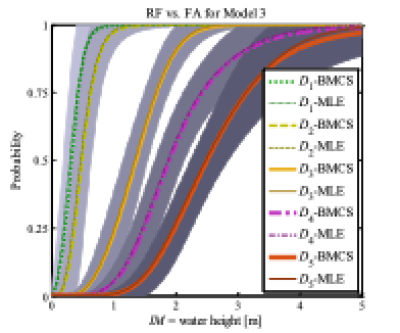At IRDR Enterprise and Innovation, we are motivated by our passion for bridging the gap between academia and practice.
Partnerships
In June, as part of a new partnership agreement with Disaster Recovery Institute International, the IRDR hosted the DRI International Collegiate Conference. DRI International is the oldest and largest nonprofit that helps organisations around the world prepare for and recover from disasters by providing education, accreditation, and thought leadership in business continuity, disaster recovery, cyber resilience and related fields. Their collegiate conferences provide an opportunity for IRDR students and staff to meet, exchange knowledge and best practice, and develop future collaborations.
In addition to spearheading this partnership, Dr Gianluca Pescaroli was awarded a consultancy worth $32,000 by the United Nations Office for Disaster Risk Reduction for the creation of a network of resilience officers and stress testing.
Careers, placements and networking opportunities for students
At UCL IRDR, we provide our students with not only academic excellence but also practical knowledge and training to support their career development.
As part of our IRDR Careers workshop series, we held a discussion on disaster risk reduction consultancies, with panellists from Needhams 1834, the UCL Warning Research Centre, and two independent consultants from different sectors. This was followed by a session on business continuity in the private sector with an IRDR alumna.
This year, we expanded our annual Disaster Risk Reduction Careers Discovery Evening, welcoming diverse industry speakers such as the Cabinet Office, British Red Cross, Verisk Extreme Event Solutions and JBA Risk Management, as well as a very popular group of alumni now working in organisations such as Marsh, Unicef, Guy Carpenter and others. Run in partnership with UCL Careers, the event attracted more than 230 registrations, including current students, applicants, members of the public and UCL alumni. Feedback from exhibitors was overwhelmingly positive. We hope to expand the event next year and already have interest from additional exhibitors.
Undergraduate student internships
As part of the Global Humanitarian Studies BSc degree, many of the inaugural group of year two students completed an internship in the summer of 2023 with a wide number of organisations offering internships exclusively to students on this programme. Over one third of the current cohort have applied for internships of which the majority are through the ‘exclusive’ internships to our BSc students. These placements are the result of proactive relationship building with more than 150 organisations, such as Holcim and the British Red Cross, many of whom are keen to establish placement opportunities in the future if they were unable to do so this year, as well as develop further collaborations with the IRDR in other areas.
Students have benefitted from dedicated careers support throughout this year to develop their professional skills, including exclusive one-on-one appointments with a career consultant. Students also receive a monthly internships newsletter, as well as having access to a dedicated IRDR Careers Moodle (our virtual learning environment) and an internships toolkit Moodle.
It is hoped that current interning students will become ‘Intern Ambassadors’ in their final year and that the continuation of the internship scheme will improve the employability of graduates from this degree, and support future collaboration within the department.
 Close
Close


